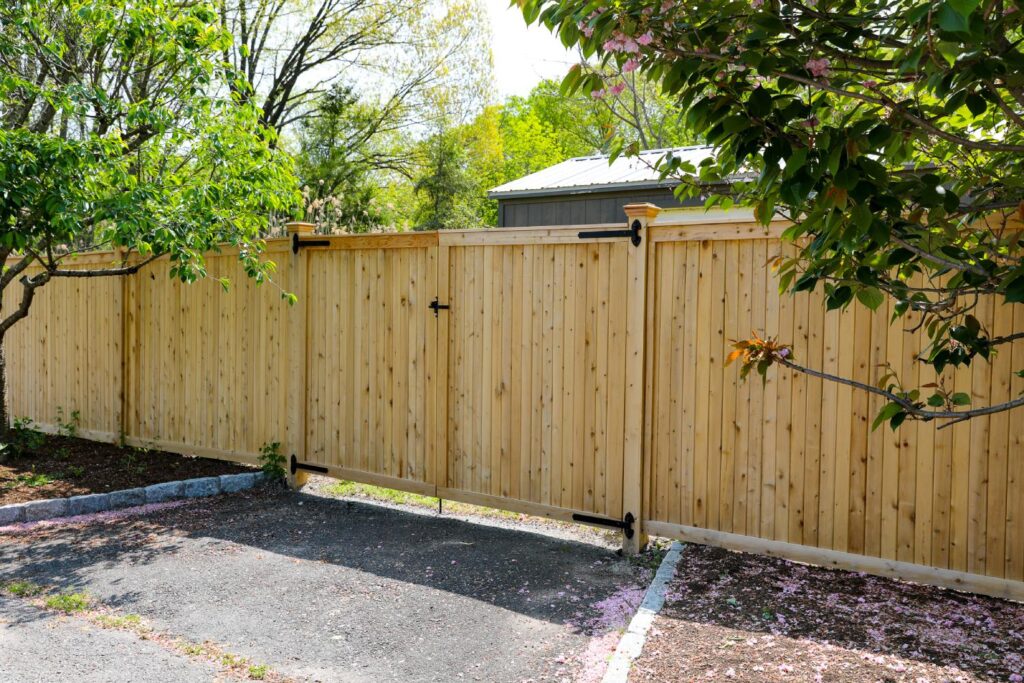All Categories
Featured

When preparing to set up a fence around your residential or commercial property, one of the initial steps is recognizing the allowing demands in your location. Here's what you need to recognize concerning obtaining the needed licenses for your fence installment.
Why Do You Need an Authorization for a Fence? An authorization is frequently needed for fencing installations to guarantee compliance with local building codes, zoning laws, and safety and security guidelines. Permitting assists neighborhood authorities keep uniformity in community appearances, safety, and ecological factors to consider. It also makes certain that the fencing does not interfere with energy lines or public areas, which it sticks to height and border limitations.

Common Permits Required for Fence Installment. Building Authorization. Most areas need a structure authorization for fencing setup, especially if the fencing surpasses a particular height (commonly over 6 feet) or is made from non-standard materials. This license makes sure that your fence abides with regional building regulations. In some locations, the building department will evaluate the website to ensure that the fencing meets security and architectural standards.
Zoning Authorization. Zoning permits are made to make certain that your fencing follows local zoning legislations, consisting of obstacles from residential property lines, easements, and rights-of-way. Zoning laws differ from city to city, and sometimes, your fencing might need to be held up a certain number of feet from the walkway or roadway. A zoning permit may likewise be needed if your fencing remains in a historic area or various other specially assigned areas.

Fencing License. In some areas, a certain "fencing authorization" may be required. When developing a fence for household homes, this is usually required. The city government might specify the height, product, and style of the fencing to guarantee it mixes well with the surrounding neighborhood. For example, some cities limit chain-link fence front lawns or have particular policies for personal privacy fences.
HOA Authorization. You may require approval before setting up a fence if your home is part of a home owners organization (HOA) HOA guidelines frequently consist of details policies concerning the kind, height, shade, and materials for fences to keep the community's aesthetics. HOA guidelines can be stricter than city codes, so always inspect their guidelines prior to moving on.
Easement or Energy Licenses. If your fence will certainly be near or throughout an easement (such as an energy easement), you might need to obtain permission from the energy business or various other entities that regulate the land. This is especially essential if you plan to dig for fencing posts, as it ensures you won't harm underground energies like water, gas, or power lines.
Just How to Figure Out What Permits Are Needed. The finest way to establish which licenses are essential for your fence installation is to contact your regional structure department or municipal office. They can supply you with specific details concerning demands in your area. Right here are a couple of actions you can take to figure out:
Examine the City or County Internet site: Numerous regional federal governments supply info about fencing setup permits online. Look for building or zoning areas on their website. Call or See City Government Workplaces: If the information is not readily available online, calling or going to the neighborhood office face to face can clarify what's required. Speak With a Professional Specialist: If you're overwhelmed or uncertain by the procedure, a local professional or fencing setup company can assist in browsing the allowing procedure, as they recognize with regional policies. What Takes place If You Don't Obtain a License? Failing to acquire the essential permits can bring about a variety of repercussions. In several locations, you might face penalties, and your fencing may be gotten to be eliminated. In addition, if you offer your residential or commercial property in the future, the lack of appropriate authorizations can be a red flag for customers and influence the sale. Permitting makes sure that your fencing is compliant and helps avoid future complications.
Verdict. Prior to installing a fencing around your residential property, it's vital to check whether a permit is needed in your location. Building licenses, zoning permits, HOA approval, and utility permissions might all contribute in your fence installation procedure. Putting in the time to study and get the essential authorizations will certainly not only ensure that you're adhering to neighborhood policies, but likewise aid protect your financial investment and maintain the integrity of your property.
Latest Posts
Don’t Miss Exclusive Auto Repair Offers in Chicago at Montclare Auto Repair
Published en
1 min read
Check Out the Best Auto Repair Offers in Montclare, Chicago
Published en
1 min read
Learn About Premier Auto Repair Care at Montclare Auto Repair – Expert Care for Your Vehicle
Published en
1 min read
More
Latest Posts
Don’t Miss Exclusive Auto Repair Offers in Chicago at Montclare Auto Repair
Published May 25, 25
1 min read
Check Out the Best Auto Repair Offers in Montclare, Chicago
Published May 24, 25
1 min read
Learn About Premier Auto Repair Care at Montclare Auto Repair – Expert Care for Your Vehicle
Published May 24, 25
1 min read